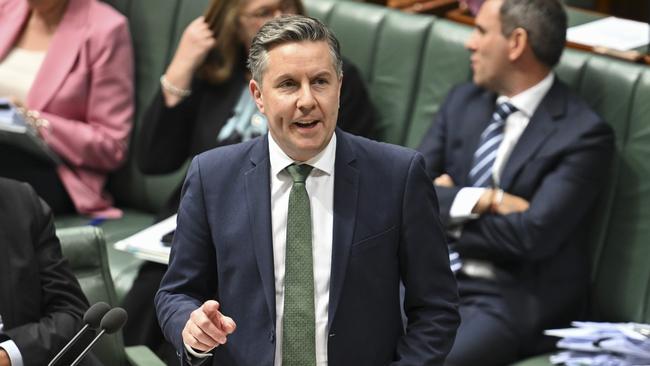Cost of living blamed for rise in Australians avoiding medications
Australians in the most disadvantaged areas are the most likely to delay getting a script filled or see the doctor. But the side-effects of the cost of living crunch are widespread, new data shows.

Australians in some of the most disadvantaged parts of the country are delaying or avoiding getting health care because of financial pressures amid the cost of living crisis.
That’s a stark finding released by the Australian Bureau of Statistics as part of its latest “Patient Experiences” survey, finding women, young people, and those with chronic health conditions were most likely to delay treatment.
According to the ABS, 11 per cent of people in the lowest socio-economic areas went without their prescribed medication due to financial pressures in 2023-2024 compared to the year before. That was almost double the rate of people living in wealthier areas.
In middle income areas, between 7.5 and 9 per cent of people delayed or did not get a prescription filled due to cost.

The Australian Medical Association said the findings showed people were feeling the pinch and being forced to make tough sacrifices.
“People should not have to choose between healthcare and putting food on the table,” said AMA president, Doctor Danielle McMullen.
“We have a really high-quality health system in Australia but we’re seeing affordability issues preventing people from accessing it.”
Data did show people from areas of the most socio-economic disadvantage were more likely to receive co-ordinated care compared to those in wealthier areas. That’s something the federal government has been working to improve through its Strengthening Medicare measures.
A key component of that work has been to provide multidisciplinary wraparound primary healthcare to patients who need it the most; like those with complex health needs and those who visit hospitals frequently.
Dr McMullen said the ABS data showed progress was being made but she worried other parts of the community were being left behind – especially those in the middle income tier and those who did not have a concession card. She said it was imperative the model now be expanded.
Health Minister Mark Butler seized on the finding.
“Although there is more work to do, our investments have stopped the slide in bulk billing,” he said.

Just over 20 per cent of people also reported delaying or avoiding seeking mental health care due to costs and 27 per cent of Australians living in areas of most socio-economic disadvantage delayed dental care.
“This was more than twice the rate of people from areas of least disadvantage, which was 11 per cent,” said Robert Long, the head of health statistics with the ABS.
Wait times and availability were other key reasons people delayed or avoided seeing their GP.
The head of the Royal Australian College of General Practitioners has urged the government to act to prevent a flow-on effect to other parts of the health system.
“We’re calling on the government to do more to make general practice care accessible and affordable for everyone, including by increasing patients’ Medicare rebates for longer consults,” said RACGP President Dr Nicole Higgins.
“We know that when people put off care, they get sicker and it puts more strain on our hospitals and the whole health system.
“We’re also seeing young people starting to treat preventive care as optional, because it’s a cost they can’t afford, which is concerning.”
The AMA said it would also like to see Medicare rebates increased and incentives for longer consultations.
Last year, the federal government unveiled new policies to try to reduce the cost of some medications and to allow 60-day prescribing so patients could get twice the medication on a single prescription.
It also increased bulk-billing incentives to doctors treating more vulnerable patients.
Mr Butler said since those changes, there had been more than 5.4 million bulk-billed visits to the doctor.
“We know there is more to do, after a decade of cuts and neglect from the former government. We will continue to work hard to strengthen Medicare,” he said.





To join the conversation, please log in. Don't have an account? Register
Join the conversation, you are commenting as Logout